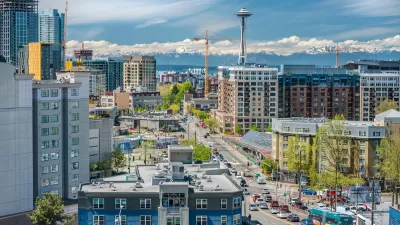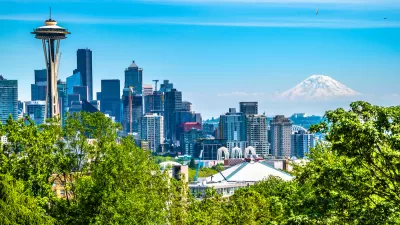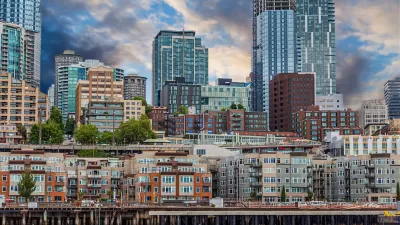The city of Seattle needs more affordable housing, like most cities. It also has almost 2,000 existing affordable units at "high risk" in the event of an earthquake.

A new earthquake system went into effect in the Pacific Northwest in April 2017, but the threat of a massively destructive earthquake still hangs over the Pacific Northwest.
In this context, the city of Seattle is faced with a difficult choice in its ongoing efforts to add affordable housing supply to keep up with rising demand in the growing city.
An article by David Kroman poses the question: "Should scarce dollars go towards making the existing housing safer at the potential expense of building new housing?"
The question has been raised in light of a recent analysis by the city's Department of Construction an Inspections, which cross-referenced the city’s list of unreinforced masonry buildings with its portfolio of affordable housing, finding "as many as 39 buildings containing 1,873 affordable apartments that could be unsafe in an earthquake."
"Estimating a retrofitting cost of $45 per square foot to bring them up to safety standards, the Office of Housing warned then Mayor-elect Jenny Durkan during her transition that the city could need as much as $79 million to upgrade the buildings," adds Kroman.
According to Kroman, Seattle and Washington lag behind California and Oregon in retrofitting buildings for earthquake safety. Other reports have identified thousands of unreinforced masonry structures in the hip Seattle neighborhood of Capitol Hill. Portland has been working recently to identify additional vulnerabilities. Los Angeles mandated another round of earthquake safety retrofits in October 2015.
FULL STORY: Seattle's earthquake-prone affordable housing needs $79M fix

Planetizen Federal Action Tracker
A weekly monitor of how Trump’s orders and actions are impacting planners and planning in America.

San Francisco's School District Spent $105M To Build Affordable Housing for Teachers — And That's Just the Beginning
SFUSD joins a growing list of school districts using their land holdings to address housing affordability challenges faced by their own employees.

Can We Please Give Communities the Design They Deserve?
Often an afterthought, graphic design impacts everything from how we navigate a city to how we feel about it. One designer argues: the people deserve better.

The EV “Charging Divide” Plaguing Rural America
With “the deck stacked” against rural areas, will the great electric American road trip ever be a reality?

Judge Halts Brooklyn Bike Lane Removal
Lawyers must prove the city was not acting “arbitrarily, capriciously, and illegally” in ordering the hasty removal.

Engineers Gave America's Roads an Almost Failing Grade — Why Aren't We Fixing Them?
With over a trillion dollars spent on roads that are still falling apart, advocates propose a new “fix it first” framework.
Urban Design for Planners 1: Software Tools
This six-course series explores essential urban design concepts using open source software and equips planners with the tools they need to participate fully in the urban design process.
Planning for Universal Design
Learn the tools for implementing Universal Design in planning regulations.
Borough of Carlisle
Smith Gee Studio
City of Camden Redevelopment Agency
City of Astoria
Transportation Research & Education Center (TREC) at Portland State University
City of Camden Redevelopment Agency
Municipality of Princeton (NJ)





























